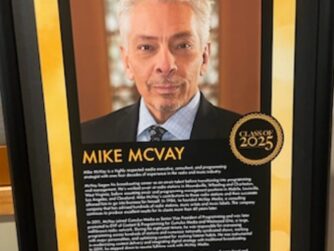On weekends I tend to binge listen to podcasts while I clean, do laundry, run errands, etc and scroll Instagram. One thing that is a constant is that in today’s world, pop culture, influencers and social media plays a massive role in shaping how we see fitness. From celebrity workout routines to fitness challenges shown in movies and TV shows, there’s no shortage of examples for us to follow. But while some aspects of pop culture encourage healthy habits, others promote unrealistic standards, extreme challenges, or short-term fixes. For women, especially in midlife, these portrayals can feel out of touch with what’s really needed for long-term well-being.
What Pop Culture Gets Right
- Fitness Can Be Fun and Engaging
One thing pop culture often nails is the idea that fitness can be fun. Many TV shows and movies depict characters enjoying physical activities, whether it’s dancing, playing sports, or even doing quirky challenges. This shows that fitness doesn’t have to be boring. You don’t need to be locked in a gym every day to stay healthy. In reality, finding a form of exercise that brings you joy is one of the most important steps toward creating a sustainable fitness routine.
- The Importance of Movement for Mental Health
Pop culture increasingly acknowledges the link between exercise and mental health. We’ve seen characters in shows turn to yoga, meditation, or even jogging as a way to clear their heads and reduce stress. And this portrayal is spot on. Regular movement can boost mood, relieve anxiety, and help manage stress, something especially important for women juggling multiple responsibilities like work, family, and the mental load of modern life.
- Inspiration to Get Moving
Whether it’s following your favorite celebrity’s workout routine or being inspired by a fitness competition on TV, pop culture has the ability to motivate people to get moving. The accessibility of fitness content, from YouTube channels to Instagram influencers, offers a range of workout ideas for people at all fitness levels. This exposure can encourage more people, especially women in midlife, to begin or restart their fitness journeys.
What Pop Culture Gets Wrong
- Extreme Challenges Are Not the Answer
One of the biggest issues with how fitness is portrayed in pop culture is the obsession with extreme challenges. We see it all the time, celebrities training for a movie role with insane boot camps, or reality TV shows where contestants are pushed to their physical and emotional limits. While these transformations might seem impressive, they often promote a “go hard or go home” mentality that can be damaging, especially for women in midlife who need to be more mindful of their bodies.
For example, challenges like the 75 Hard Challenge or other intense workout regimes can lead to burnout or even injury if you’re not in tune with your body’s limits. These challenges might work for a short time, but they’re not realistic for long-term fitness or health. Plus, extreme workouts can often cause more harm than good, especially for women going through hormonal changes.
- One Size Does Not Fit All
Another myth pop culture pushes is that there’s a “perfect” way to work out. Whether it’s following a celebrity’s exact routine or joining a trendy new fitness class, many people feel pressured to fit their lives into a one-size-fits-all fitness plan. But here’s the truth: everyone’s body is different, especially as we age. What works for a 20-year-old actress training for an action movie might not work for a 40-year-old mom balancing a career, kids, and her own health. And that’s okay!
Fitness for women in midlife should be about listening to your body and finding what works for you, not blindly following trends that may not align with your current health needs. This is where intuitive movement comes in, a practice that encourages women to move in ways that feel good, rather than following rigid workout schedules or punishing themselves with extreme challenges.
- Quick Fixes Don’t Lead to Long-Term Results
Pop culture loves a good “before and after” story, and we’ve all seen those dramatic transformations where someone sheds weight or gets in shape in just a few weeks. While these can be inspiring, they’re often misleading. Fitness is not just about achieving a certain look or hitting a number on the scale, it’s about long-term health, which takes time and consistency.
Unfortunately, many fitness trends in pop culture focus on quick fixes, fad diets, or extreme measures that aren’t sustainable. For women in midlife, this can be especially harmful, as the focus shifts from longevity and well-being to rapid, short-term results. This mentality can lead to yo-yo dieting, burnout, and an unhealthy relationship with exercise and food.
Embracing Intuitive Movement for Long-Term Health
So, what’s the solution? For women in midlife, especially, it’s time to move away from the unrealistic standards of pop culture and embrace intuitive movement. Intuitive movement is about tuning in to what your body needs on any given day. Maybe one day you feel energized and want to go for a walk or try a strength workout. Other days, a gentle yoga session or stretching may feel more aligned with your energy levels.
By focusing on how movement makes you feel, instead of trying to meet external expectations, you can develop a healthier, more sustainable relationship with fitness. This approach is not only more realistic for women dealing with hormonal changes, stress, and the physical demands of life but also promotes long-term wellness and body awareness.
Pop culture has its moments of inspiration when it comes to fitness, it misses the mark by promoting unrealistic, extreme, and one-size-fits-all solutions. For women, the key is to reject these harmful trends and instead focus on intuitive movement and realistic approaches that honor where you are in your fitness journey.
Fitness isn’t about punishing your body or achieving perfection, it’s about moving in a way that feels good, supports your mental health, and sustains you for the long haul.







